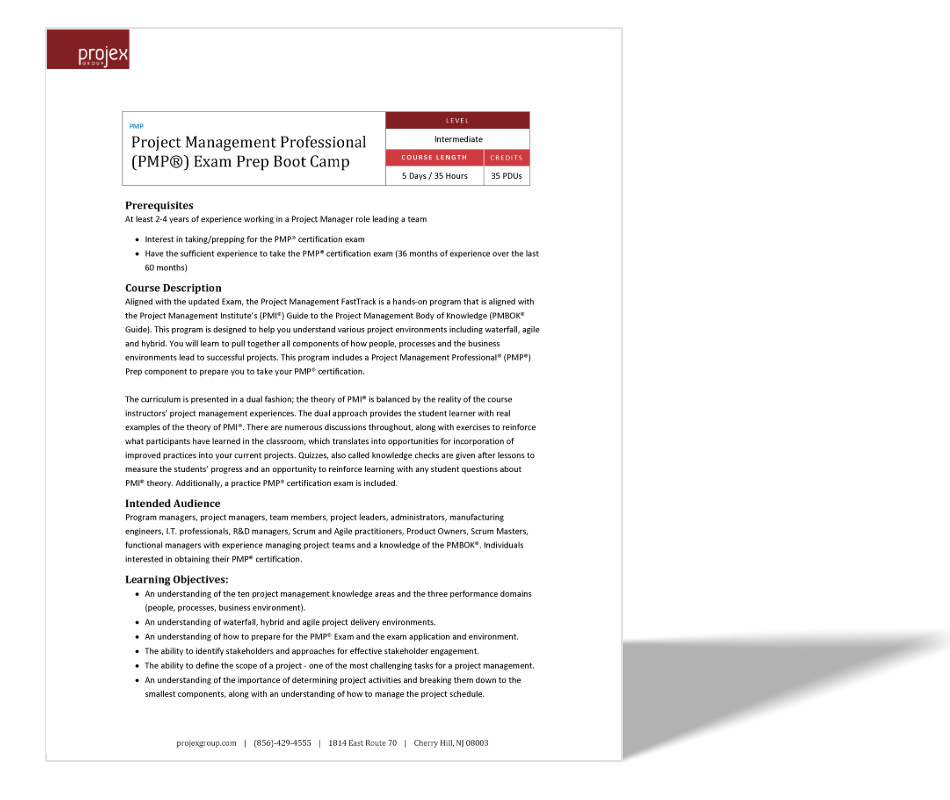PMP
Project Management Professional (PMP®) Exam Prep Boot Camp
LEVEL
Intermediate
COURSE LENGTH
5 Days (Instructor Led) / 35 Hours
CREDITS
35 PDUs
Course Description
Aligned with the updated Exam, the Project Management FastTrack is a hands-on program that is aligned with the Project Management Institute’s (PMI®) Guide to the Project Management Body of Knowledge (PMBOK® Guide). This program is designed to help you understand various project environments including waterfall, agile and hybrid. You will learn to pull together all components of how people, processes and the business environments lead to successful projects. This program includes a Project Management Professional® (PMP®) Prep component to prepare you to take your PMP® certification.
The curriculum is presented in a dual fashion; the theory of PMI® is balanced by the reality of the course instructors’ project management experiences. The dual approach provides the student learner with real examples of the theory of PMI®. There are numerous discussions throughout, along with exercises to reinforce what participants have learned in the classroom, which translates into opportunities for incorporation of improved practices into your current projects. Quizzes, also called knowledge checks are given after lessons to measure the students’ progress and an opportunity to reinforce learning with any student questions about PMI® theory. Additionally, a practice PMP® certification exam is included.
Learning Objectives:
An understanding of the ten project management knowledge areas and the three performance domains (people, processes, business environment).
An understanding of waterfall, hybrid and agile project delivery environments.
An understanding of how to prepare for the PMP® Exam and the exam application and environment.
The ability to identify stakeholders and approaches for effective stakeholder engagement.
The ability to define the scope of a project - one of the most challenging tasks for a project management.
An understanding of the importance of determining project activities and breaking them down to the smallest components, along with an understanding of how to manage the project schedule.
An understanding of the differences between qualitative and quantitative risk analysis, and when it is appropriate to use each type of analysis
The ability to manage conflict on the project team and among stakeholders, along with common communications issues and how to resolve them.
An understanding of common calculations involved in project management including earned value, critical path analysis, communication channels and more.

